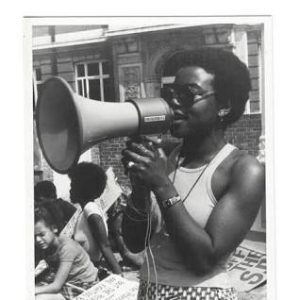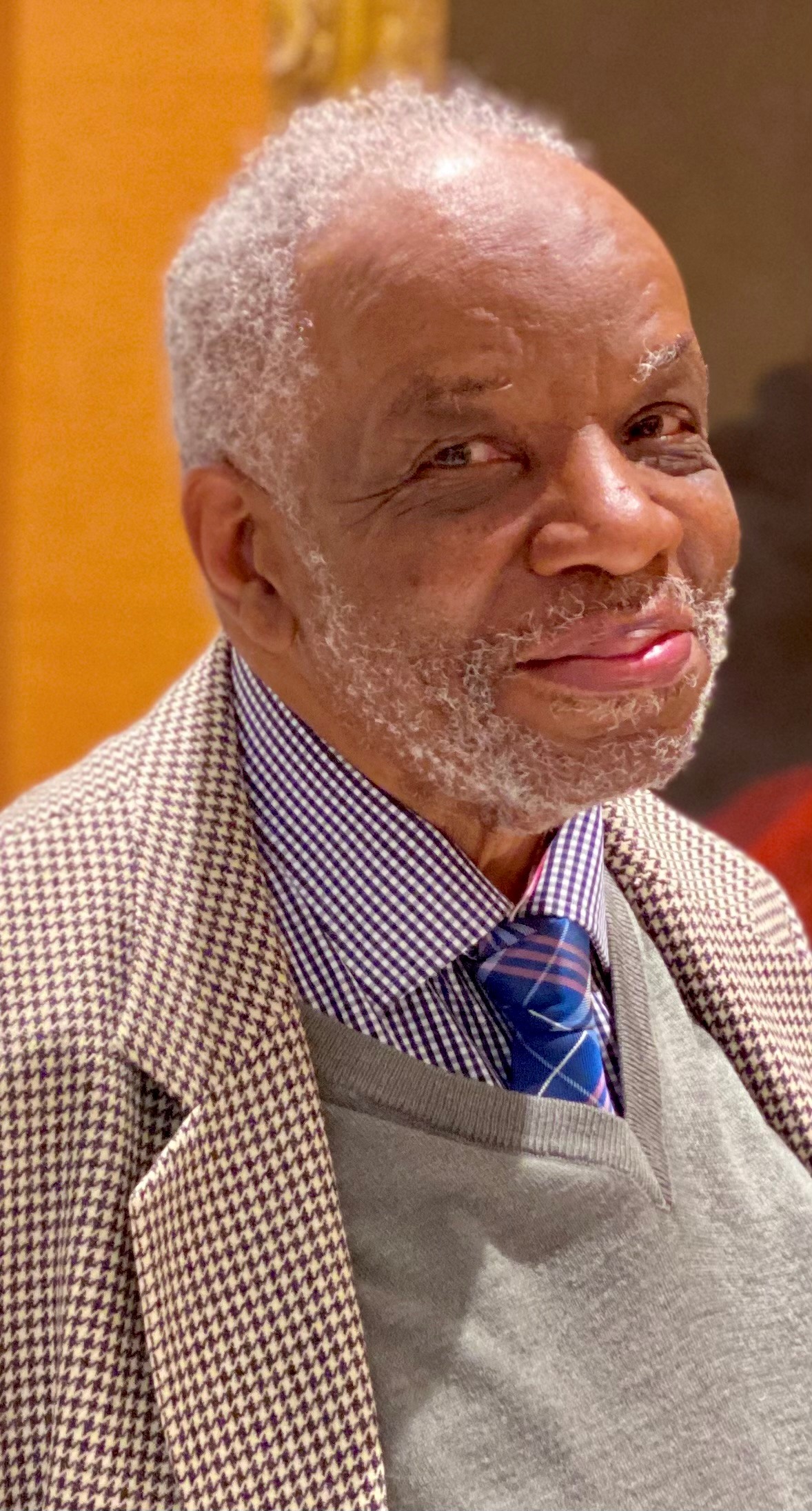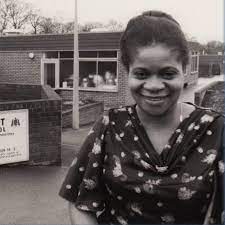This Black History Month, we have put together profiles on some Black British people with histories of campaigning for social justice and equity in mental health support for Black communities. Read on to find out more about Olive Morris, Dr. Aggrey Burke, and local icon Gertrude Paul…

Olive Morris (1952-79): Racial Justice Activist and Feminist
Olive Morris made a huge impact in the national Black freedom movement against racism, poverty, and sexism but, unlike the stories of peers like Darus Howe and Angela Davis, her story is largely untold outside of her local community.
Morris was born in St Catherine, Jamaica, moving to South London at the age of 9. She left school with no formal qualifications and joined the British Black Panther Youth League, where she read Black scholars and went on to study A levels and then Social Sciences at Manchester University.
At 17, she intervened in an act of police brutality against Nigerian Diplomat, Clement Gomwalk, and was beaten to the ground. She faced further brutality when in prison and was then convicted of assaulting a police officer. ,This started her struggle against oppression.
She recognised early on the need to understand how being Black and female means you face oppression on the grounds of both. She co-founded both the Organisation of Women of Asian and African Descent and the Brixton Black Women’s group, tailoring support to the needs of the groups and uniting women of colour from different backgrounds. She also encouraged Black women to come together to form study and self-help groups and campaign against the Sus Laws.
Morris sadly died of cancer in 1979 at the young age of 27. She has since been memorialised in many ways. There are currently plans to set up a scholarship in her name. A local authority building in Brixton was named “Olive Morris House” in her memory in 1986. The building is due to be demolished but there are plans for a stone memorial in its place. In his 1980 poetry collection ”Inglan Is A Bitch” Linton Kwesi Johnson published “Jamaica Lullaby” in memory of Morris.
Dr Aggrey Burke: Psychiatrist, Academic, Specialist in Mental Health (born 1943)
Aggrey Burke dedicated his career to understanding and improving the experiences and extreme systemic inequalities of mental health services for people of colour.
Born in Clarendon, Jamaica to parents who campaigned for social justice, he ultimately studied in Ethiopia, the Caribbean and Britain.
Black people are 4 times more likely to be detained under the Mental Health Act than white people, ten times more likely to be placed on community treatment orders, seven times more likely to be placed in secure treatment units and more likely to receive a higher dose of anti- psychotic medication rather than being offered talking therapies, and more likely to be classed as aggressive or dangerous rather than in need of support. These types of systemic inequalities also effect other minoritised communities and people of colour. Aggrey Burke wanted to change this.
When still in Jamaica, Burke wrote the earliest report on Schizophrenia in the Caribbean. In 1976, Burke published works on attempted suicidein immigrant Irish, West Indian and Asian people in Birmingham, UK. Along with Joe Collier, Burke also exposed discrimination in London Medical Schools writing a paper “Racial and Sexual Discrimination in the Selection of Students for London Medical Schools”.
When the New Cross Massacre happened in 1981, he set up a support group for families who were affected, to provide counselling and support. It was the first group of its kind.
Raising these issues came at a high price and he was never promoted, despite his excellent reputation. However, his research led to an enquiry into St Georges Medical School by the Commission for Race Equality, and recommendations were made to improve their practice and to offer places to previously unsuccessful applicants declined on the grounds of race discrimination.
Summarised from 100 Great Black Britons – Patrick Vernon and Angelina Osborne


Gertrude Paul: First Black Headteacher in Leeds and
Born in Saint Kitts, Gertrude Paul moved to Leeds in 1956. She then became the first black teacher in Leeds and, subsequently, the first black headmistress in the city at Elmhurst Middle School in Chapeltown, 1976.
She was, as her daughter Heather recently described her, a woman of ‘many firsts’:
- She also organised the UK’s first Saturday school, teaching cultural history, literacy and numeracy to children in the area.
- She was one of the founders of the West Indian carnival in Leeds, the longest running West Indian Carnival in the UK and a staple in the city’s cultural calendar to this day.
- She also co-founded the Leeds International Women’s Group, the Afro Asian Organisation and the United Caribbean Association, which she was also president of.
Outside of her teaching and community organising work, Mrs. Paul also served as a Commissioner for the Commission for Racial Equality in the 1980s.
Mrs. Paul sadly passed away in 1992. She has left an incredibly legacy behind her and has been honoured and memorialised in many ways since:
- Leeds Civic Trust dedicated a blue plaque to Gertrude at her Elmhurst Middle School.
- In 2020, Leeds Beckett University established a PhD scholarship in her name, which will enable research into how numeracy and literacy can be improved for primacy school from African and Caribbean backgrounds.
- In 2023, an affordable housing development for people aged 55+ opened in Chapeltown, named in honour of Gertrude Paul. These houses include a specially commissioned artwork of celebrating Gertrude Paul’s legacy inside by local artist, Marcus ‘Hyro’ Browne.





